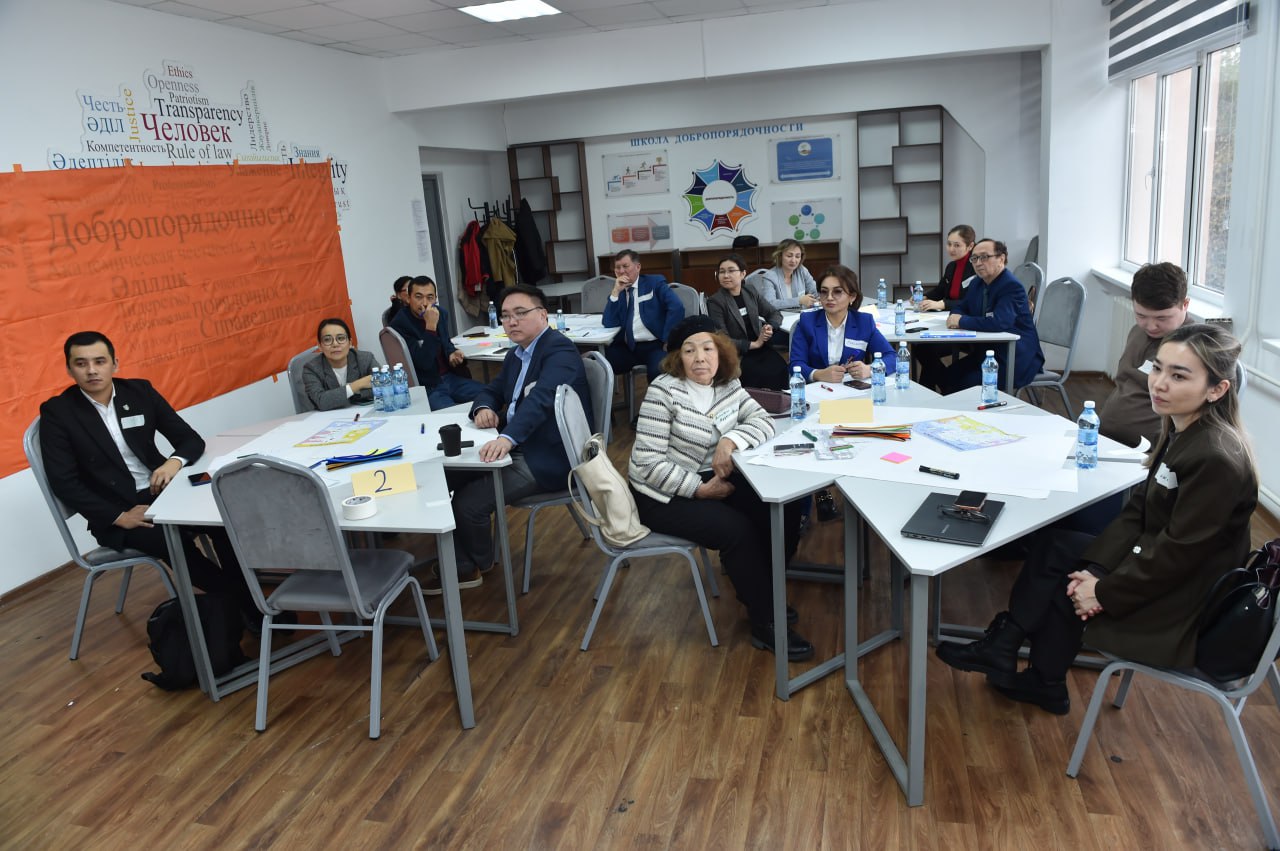
It is impossible to imagine the modern world without the internet. We use it in almost every sector, especially in communication, trade, the banking sector, and in our work. However, with the advancement of digitalization, the wave of cyber threats is also increasing. Cybercrime, including fraud such as data theft and account hacking, is becoming more prevalent. It is important to understand how to protect yourself in the online environment and what measures can help reduce these risks.
Recently, our group had an open hour with Master of Law, Baiturbay Orinbassar, who served as a curator-advisor on the topic of cyber threats. During this session, we received valuable information on how to properly use various social networks, which we use daily, and how to prevent cyberattacks.
In general, cybercrime refers to illegal activities conducted through the internet or computer technologies. The primary examples of such crimes include identity theft, such as stealing passwords, credit card numbers, or personal identification details. Another common crime is phishing, where fraudulent emails or messages are sent with the goal of obtaining confidential information or committing financial fraud. Thirdly, sending viruses and malicious software, which infiltrate devices to steal information, spy on users, or corrupt data, is a significant threat. Additionally, there are ransomware attacks, where harmful programs lock access to data until a payment is made by the user.
To protect yourself from cybercrimes, it is essential to implement a series of precautionary measures. I would like to highlight a few strategies:
-
Use complex passwords: Avoid using the same password for different websites. Consider using password managers that store passwords in an encrypted form and generate strong, unique passwords.
-
Enable two-factor authentication (2FA): This method requires not only a password but also a second factor, such as an SMS code or biometric data (fingerprint), significantly enhancing account security.
-
Keep software up to date: Regularly updating applications helps close vulnerabilities that attackers may exploit.
-
Install reliable antivirus software: Such software can detect and neutralize threats. Using a firewall can protect your device from unwanted incoming and outgoing connections.
-
Be cautious with public Wi-Fi networks: These networks are often vulnerable to attacks. It’s best to avoid using them for online banking or entering confidential information.
-
Use VPN (Virtual Private Network): VPNs encrypt internet traffic, ensuring secure online activity even on public networks.
When encountering suspicious links or attachments from social media, be cautious. If a message or email seems suspicious or comes from an unknown sender, it’s safer not to open any attachments or click on links. Another important precaution is to check URL addresses. Phishing sites often mimic official sites with slight changes in the URL. Always verify the address before entering any personal data.
How to respond to a cyberattack? Even after following all safety measures, a cyberattack may still occur. It is crucial to know how to act in such cases:
-
Change your passwords immediately: If you suspect that your accounts have been compromised, change passwords for all important services.
-
Contact financial institutions: If data theft has occurred, contact your bank to prevent unauthorized transactions.
-
Scan devices with antivirus programs: It is important to ensure your devices are free from malicious software.
-
Report to law enforcement: If there has been a serious attack, such as account theft or data breach, it is essential to inform the authorities.
As technology advances, cybercriminals continue to find new ways to attack users and organizations. However, defense technologies are also evolving. Artificial intelligence and machine learning are already helping identify suspicious activities and prevent attacks. In the future, one of the main factors in protection will be enhancing digital literacy among social media users. It is crucial to learn how to behave online and how to respond to potential threats.
As the saying goes, "Prevention is better than cure." Only by improving our responsibility and awareness can we protect ourselves from becoming victims of cyberattacks.
Jasmin ZHORABEKKYZY,
2nd-year student,
Major in "Natural and Technological Hazards"
Other news


